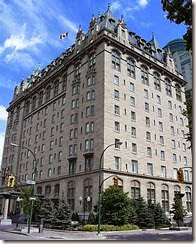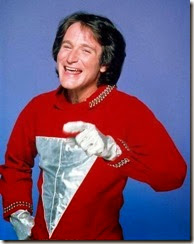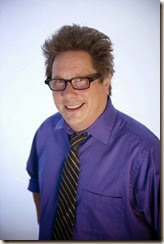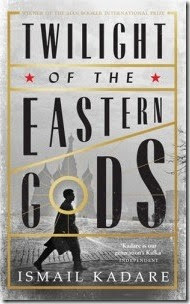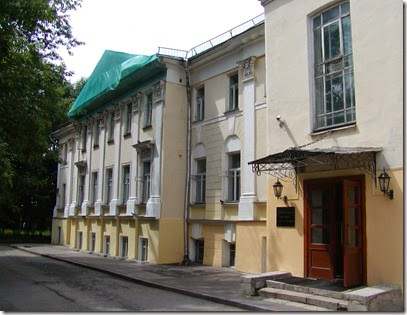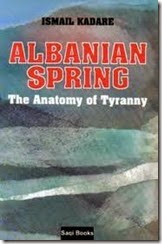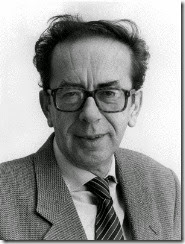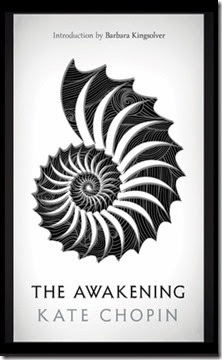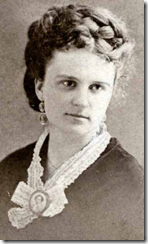
Doubt is not a pleasant condition,
but certainty is absurd – Voltaire
I wrote a poem back in 1996 about beliefs:
THE NATURE OF BELIEFS
The thing about beliefs is
they don't need to be true.
That's not their job.
They're there because
so many things aren't true.
Nature abhors a vacuum.
19 December 1996
The word 'belief' is one I struggle with. Like all words the only way you can explain belief is by using other words and the most obvious synonym for 'belief' is 'faith' which I have less of a problem with. The first definition I learned regarding faith came from the Bible where Hebrews 11:1 says that faith is "the assured expectation of things hoped for, the evident demonstration of realities though not beheld." Of course the definition on its own doesn't really get to the nitty-gritty of what faith is. Late on in that same chapter (vs. 27) Paul talks about Moses "as seeing him who is invisible." Even though he had never seen God, he was as real to Moses as if he had seen him. His faith was based on experience and evidence. Of course he had the opportunity to talk directly to God and that’ll go a long way to convincing anyone that someone is real. By Paul's day God had stopped making it so easy. Even Paul only got to hear the resurrected Jesus on the road to Damascus but he still reasoned that there was sufficient evidence in the world about us to convince anyone of the existence of a sentient creator. As he said to the Romans (1:20): "For ever since the world was created, people have seen the earth and sky. Through everything God made, they can clearly see his invisible qualities—his eternal power and divine nature. So they have no excuse for not knowing God." And yet there are more people than ever who don't believe in God. You would think that all science could possibly do is provide irrefutable proof of intelligent design in nature and yet that doesn't seem to have happened.
As you'll see from the previous paragraph, I know my Bible. I was brought up in a religious household—one that encouraged study and eschewed blind faith—and yet here I am as a grown man, having left the faith I was brought up in and disinterested in finding another. So have I stopped believing in God? I can't answer that question because I never believed in him in the first place which is odd because I have been through tons of evidence and can't refute it. Creation is every bit as believable as evolution. None of the evidence touched me, though. Proof requires more than corroborative evidence. It requires a willingness to accept that evidence.
I don't understand the concept of spirituality. I can appreciate things intellectually and emotionally but not spiritually. I learned facts and figures from the Bible and other literature but that was it. I could prove there was a God (as much as anyone these days can offer up proof) but that proof didn't affect me. Okay, I couldn't get to know God personally (even though I was encouraged to develop a ‘personal relationship’ with God) although I did have "the mind of Christ" (1 Cor. 2:16) but I found that trying to "walk in the footsteps of the faith" (Rom. 4:12) was unnatural and uncomfortable. I knew, for example, that fornication was a sin but I couldn't see why it was wrong. In 1966 being gay was a criminal offence in England but in 1967 it wasn't unless you crossed the border into Scotland where it still was (and continued to be until 1980). I'm not gay but my point is that perfect laws don't work in an imperfect world. I understand why God instigated the Law Covenant with Israel (which incorporated the Ten Commandments) because it condemned all of us to death (since no man could keep it, including Moses) and hence evidenced the need for a saviour, but here's the thing: there was no Law in Eden apart from a proviso that they didn't eat from a certain tree. The point's been made, the saviour has come and gone, the ransom paid, so whether we sin or not is neither here nor there.
The way I feel about my religious upbringing is the same way I'd feel about a wife my parents had arranged for me to marry as still happens in parts of the world. There will always be good and reasonable reasons why parents select the kind of prospective bride that they do. They know their son and his needs. And they care for him. Well I know all the reasons why my parents would want me to believe in their God but the fact is I look at him (based on the same evidence as was available to Paul) and feel nothing. In the first of the two "new" commandments that Jesus laid down before his disciples (summarising the essence of the whole Law of Moses) he said, “The most important one … is this: ‘Hear, O Israel: The Lord our God, the Lord is one. Love the Lord your God with all your heart and with all your soul and with all your mind and with all your strength.’" (Deut. 6:4) I don't love God. I don’t hate God. I don't know God. I can see all his admirable qualities and I've read at length about how he’s reportedly dealt with people—including sending his only-begotten son to Earth—but none of that matters to me. I’m with Patti Smith:
Jesus died for somebody's sins but not mine
Meltin' in a pot of thieves wild card up my sleeve
Thick heart of stone my sins my own
They belong to me. Me
[from Gloria (In Excelsis Deo)]
I'm not an atheist. I'm not an agnostic. I'm not a believer. To be any one of these I would need to take a stance and the simple fact is I don't care anymore. In 2001 I wrote this poem which basically states my current position. 
HUMAN RACE
(for Richard Brautigan)
A man cannot lose what he never had
but he can give up trying to get it.
Just walk off the track.
Come, join the rest of us on the bleachers.
It's that easy.
Catch your breath now.
It's too hot to run.
I've heard say parallel lines never meet.
Sometimes they seem to – in the distance –
they disappear over the horizon
so no one knows for sure.
25 May 2001
Of course I’ve no axe to grind with those who do find they have a need for God in their lives any more than I’ve no problems with people who choose to pay hundreds of pounds to listen to some opera or other and there was a time in my life I did go through the motions hoping that, by osmosis, I’d acquire a faith: 
AFTER DAVID
I have heard there is a god
who looks for men of crushed spirits.
I don't know where to look for him.
But if he wants to find me
I will not hide.
23 March 1984
I don’t like not getting things but there’s a lot in this life that I don’t get in addition to religion and opera and as I’ve grown older I’ve reconciled myself to never understanding some things or needing to understand them. And so I focus nowadays on what I’m drawn to. Not everyone walking along the same beach will stop and pick up the same rock or poke the same jellyfish with a stick. “Ezra … spent his entire life studying and obeying the Law of the Lord and teaching it to others.” (Ezra 7:10), Gottfried Wilhelm von Leibniz spent his entire life studying and advancing logics such as mathematics and philosophy; Sigmund Freud spent his entire life studying human nature and childhood; Morihei Ueshiba spent his entire life studying martial arts; Karl von Frisch spent his entire life studying bees and won a Nobel Prize in 1973 for his research on that subject; Joseph Pilates spent his entire life studying the human form and exercise. You get the idea. It’s not at all abnormal to focus on one area of interest to the exclusion of everything else. For God’s sake, Haldan Keffer Hartline devoted nearly his entire life studying the eyes of horseshoe crabs and Dave Shealy’s spent his entire life studying a smelly hominid cryptid known as the Skunk Ape!
I wasted so much time searching for the Holy Grail of my own spirituality. So what do you believe in, Jim? Fair question. I found a page where people listed ten things they believed in. Belief in this context really means certitude. People who believe in God are certain that he will do what he says; they have no doubts. I, on the other hand, am riddled with doubts. I’m fairly certain about a lot of things I’m fairly certain my wife’s not going to leave me and run off with Sean Connery but experience has taught me that “time and unforeseen circumstance” (Eccl. 9:11) befall all men. I would like to write another novel but I’m far from certain that I will. The odds are I will based on my previous performance and there are still areas that interest me enough to want to write about them at length. But nothing’s certain.
In that respect I do have a degree of faith in the unknown. The unknown is my subconscious and he plays a hugely important part in my writing. We don’t exactly collaborate, though, but over the years I’ve learned to trust him. While I’m busying with other things, sleeping and stuff, he’s fully occupied getting material ready for me to work on later. The writer Dario Ciriello posted this tweet a while back:
A good writer's subconscious always knows the full story. The challenge is to train the conscious mind to access and transcribe it.
Stephen King talks about “the boys in the basement”:
The boys in the basement are the guys who actually do my heavy lifting. They're the muses. And we have a picture of muses as being very ethereal creatures, but I think they are non-union labour. They are hardworking guys with Camels rolled up in the sleeves of their shirts. – Lisa McRee, Kevin Newman, Stephen King's Bag of Bones, ABC Good Morning America, 23 Sep 1998
A much better image than the airy-fairy muse. I agree.
Every day though I wait for “a sign” (Matt. 12:38). Every thought I have I ask myself: Is this my subconscious tossing out an idea for me to develop? Mostly it’s not. I have a very slow subconscious. He likes to mull over things for a long while. He definitely works in “mysterious ways” which is not a scripture by the way but from a poem by William Cowper.
A friend of mine once fell out with me over religion. She was committing adultery but said that God would understand. I disagreed. He might understand but he wouldn’t condone her actions which is what she wanted. Although some effort was put into making up, our friendship was never the same afterwards. For the record, I’d no problems with her committing adultery, none whatsoever, but it wasn’t my blessing she was looking for. She wanted to reform God in her own image and that’s just not on. If you decide you want to believe in God then here’s what you have to do: Find out what he wants and do it. Or you can shop around and look for a god who shares your values. Or you can do what Henry VIII did and just start your own religion.
A writer’s subconscious is a little god. Let’s not fool ourselves. He’s the guy in charge. You can’t apply the imperatives of industrial output to the mystery of creation. The writer William McIlvanney has said in interview, “I have always written from compulsion. I cannot even write to my own order, never mind anyone else's.” The word ‘compulsion’ crops up often in interviews with him. He was 20,000 words into a novel called Tribute to the Minotaur when he stopped and never returned to it:
The reason wasn’t so much a revulsion away from that book as an overwhelming compulsion towards another. – Alan MacGillivray, Natural Loyalties: The Work of William McIlvanney, The Association for Scottish Literary Studies
Of course I can’t read that without thinking of Matthew 4:1: “Then Jesus was led by the spirit up into the wilderness.” And that’s what a new novel is, a wilderness. Not just a blank page, a desert of blank pages. Who in his right mind would go there willingly? Joan Didion writes in ‘On Keeping a Notebook’:
Although I have felt compelled to write things down since I was five years old, I doubt that my daughter ever will, for she is a singularly blessed and accepting child, delighted with life exactly as life presents itself to her, unafraid to go to sleep and unafraid to wake up. Keepers of private notebooks are a different breed altogether, lonely and resistant rearrangers of things, anxious malcontents, children afflicted apparently at birth with some presentiment of loss.
 I’m not sure ‘loss’ is the right word for me. When I write I’m looking for something I never had in the first place. Feeling that something is missing is not necessarily the same as loss although I expect the feelings are not dissimilar. I want to rearrange the world to suit me. The world is too big and uncooperative so I make do with a virtual world and in that world I become “like God, knowing good and evil” (Gen. 3:5). Maybe I don’t have a bunch of hardworking guys with Camels rolled up in the sleeves of their shirts inside me. Maybe it’s a wee devil.
I’m not sure ‘loss’ is the right word for me. When I write I’m looking for something I never had in the first place. Feeling that something is missing is not necessarily the same as loss although I expect the feelings are not dissimilar. I want to rearrange the world to suit me. The world is too big and uncooperative so I make do with a virtual world and in that world I become “like God, knowing good and evil” (Gen. 3:5). Maybe I don’t have a bunch of hardworking guys with Camels rolled up in the sleeves of their shirts inside me. Maybe it’s a wee devil.





